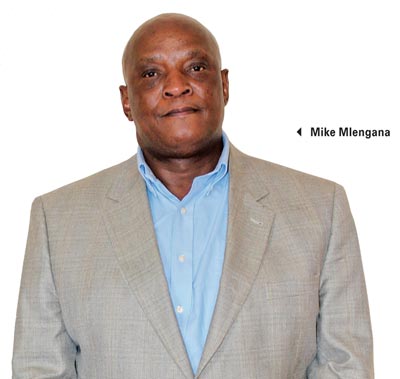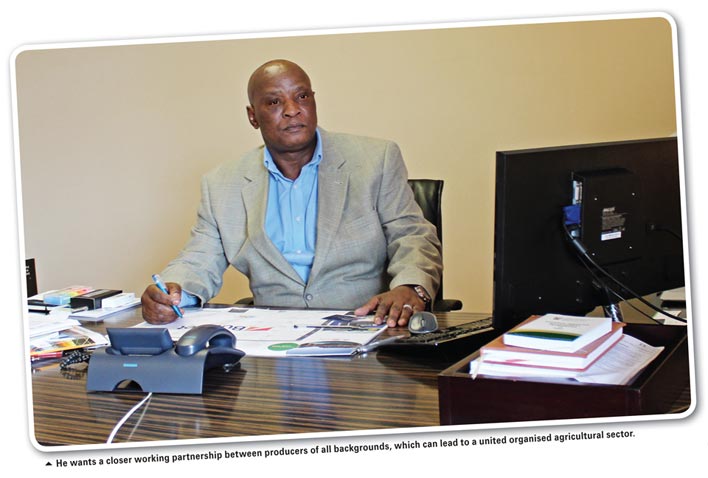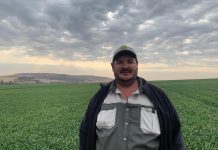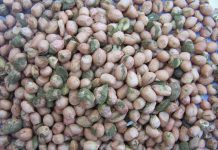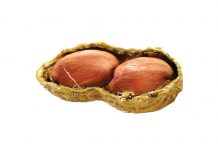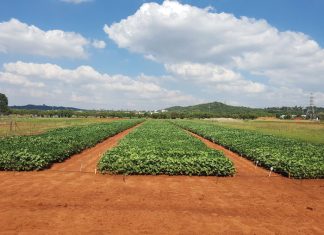November 2016
The new DG of the DAFF, Mike Mlengana
LOUISE KUNZ, SA Graan/Grain contributor
On a personal note
Mike Mlengana was born and raised in a rural farming community in the small town of Port St John’s (former Transkei) on the Wild Coast of the Eastern Cape Province as the son of a subsistence farmer. ‘Subsistence farming was all I knew. It was at the core of the communal livelihood and what was done to survive in our area,’ he recalls. The society in which he was raised was one of conservatism with a traditional culture and rules. He mentions that he still respects those values and rules whenever he visits the area.
He grew up in a semi-literate family with a father who was not schooled and was therefore determined to get a good education. His undergraduate degrees were completed at the University of Fort Hare and Rhodes University, after receiving a German scholarship to study at this institution. He is also a Fulbright scholar with an MA in Financial Economics and Economic Development from the Graduate School of Economic and International Studies in Denver, Colorado in the United States of America.
As a young boy growing up in a rural community he was eager to have a job and earn a small income. He was eventually employed by a store owner in Grahamstown where school uniforms and sporting goods were sold. Here as an honest child who wanted to ensure a better future for himself and generations to come he cleaned between the ceiling and the roof and earned a mere R15 per week. This humble beginning in the business world made him determined to succeed in life.
The motto by which he lives is: Live everyday as if it is your last day. Appreciate nature – appreciate that which God has created for us to enjoy – and live in harmony with it.
He is married to Patience and they have three children.
Confident, respectful and critical. This is how the new Director- General (DG) of the Department of Agriculture, Forestry and Fisheries (DAFF), Mr Mzamo Michael Mlengana, better known as Mike, describes himself. Mlengana took over the reins from Prof Edith Vries on 1 July.
As the former president of the African Farmers’ Association of South Africa (AFASA) Mlengana has proven himself as a leader in the agricultural field. He also brings experience from his previous top management positions like Telkom SA Limited, where he was the vice president of Corporate Development at Telkom as well as other private and publicly owned entities. Mlengana says he is ready to take on the challenges of this multifaceted department.
To role-players in organised agriculture his appointment is good news. As a commercial producer he has first-hand knowledge of the challenges facing the farming industry and he worked with both smallholder and established farmers.
He farms with Bonsmaras and meat Merinos in the Magaliesburg district and also cultivates maize and vegetables.
‘To me farming creates harmony between man and nature. Harmony that is indescribable as you interact with the land and animals. It brings a sense of fulfilment which generates passion,’ he says about his love for farming and adds, ‘It is an intuitive reaction that God has instilled in the inner being of who I am.’
Dealing with challenges
After only two months in office Mlengana is still in the process of rectifying the shortcomings he has identified in the department. As an analytical person, he focuses on the benefit of processes and concentrates more on solutions than on the problem itself.
‘It has been necessary to give effect to transparent decision-making and the manifestation of proper leadership skills to employees,’ he shares. He would like to see this department converted into an efficient organisation to promote the collective interests of the agricultural industry.
Taking over the reins in a difficult period in agriculture after a severe drought, is not an easy task. He has already analysed the circumstances of the past season. ‘Indeed the drought has dealt a blow to the farming community, but to me the drought as such was not the issue. I believe the issue was our inability to predict the economic shocks that accompanied the drought,’ he shares his viewpoint.
Mlengana believes that there should be greater co-operation between the agricultural industry, the Weather Bureau and the Disaster Management Centre to provide a pro-active understanding of what to do before and when problems arise.
‘We should use the information of past events with current resources and skills to help us make predictions and come up with solutions to events that can present challenges to us, like the drought,’ he expands.
In his opinion crisis management should be handled in two phases: Short term intervention where the immediate identification of areas which were affected the most severely should be declared as disaster zones and aided accordingly and medium term intervention where strategies should be put in place to manage disasters.
His solution to problems resulting from drought is to be better prepared. Smallholder farmers should plant fodder this season for next winter. South Africa should also start investing in water harvesting technologies where water can be stored underground for future use – 50 x 10 000 litre tanks could have a big impact during a drought.
Working with the Department of Water and Sanitation a strategy should be formulated to predict water shortages timeously and to ensure that the current dam levels increase.
Plans and objectives
The new Director-General hopes to improve the role the DAFF plays in the agricultural industry. One of the areas where he wants to make the biggest impact is in rural areas.
‘Government grants have had the unintended consequence of making people dependent on the government. People are not desperate to do things for themselves. They are not self-reliant so fields are left uncultivated and cattle are not cared for properly because at the end of the month the government will bring assistance,’ he elucidates on this serious problem.
He would like to see extension officers training subsistence farmers in rural areas to improve their farming skills. To ensure that this realises, sufficient funds will be needed.
Converting dependence on government to self-reliance is however not his only priority. Other issues on his agenda include support to white commercial producers to find markets overseas and a closer working partnership between producers of all backgrounds which can lead to a united organised agricultural sector.
Mlengana’s five-point plan to optimise the DAFF’s functionality is as follows:
- The revitalisation of all agricultural projects that have failed in the past, like dams and irrigation schemes. Agro-processing like a mealing facility is vital as primary production and must lead to value creation in the value chain.
- The department has to ensure that smallholder farmers own assets that will lead to less dependence on the government.
- An electronic producer register has to be established where a complete profile of all producers in South Africa are listed for reference purposes. There must also be a technological management system that captures all assets and activities in agriculture in one central system.
- Broad consultation with all stakeholders in a transparent manner has to take place about planned action and strategies.
- To verify and validate all assets of the department that have been purchased, for example unutilised tractors have to be restored as the department cannot buy new equipment all the time.
His biggest dream for his term as Director-General is to have achieved the development of at least 50 fully fledged African commercial producers per province – producers who are able to produce quality products that give rise to foreign earnings and contribute to growth in the country. In addition hereto he dreams of a commercial business owned by emerging farmers – a commercial entity that serves the country.
On his wish list is also the establishing of an electronic producer register where the complete profile of a producer can be seen at the press of a button. During his term he wants to ensure that the capacity profile of the department is improved.
Food security
To Mlengana food security is a poverty alleviator which is therefore a priority. He believes that importing food from outside South Africa will not stop poverty, so the communities have to be assisted to produce their own food.
‘Communities must develop a self-reliance attitude to prevent them from being dependent on others for the rest of their lives,’ he says. To him hunger is at the centre of almost all the problems in Africa. It will therefore continue to be a priority to the government together with job creation.
Publication: November 2016
Section: Relevant



